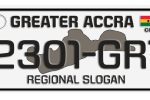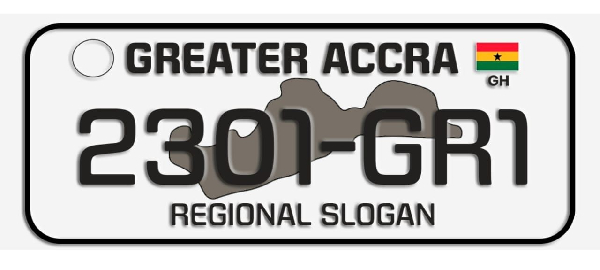Ghana is set to introduce a transformative vehicle registration system beginning January 1, 2026, marking a significant shift in how number plates are issued and tracked. The Driver and Vehicle Licensing Authority (DVLA) has announced that the traditional format, which includes the year of registration, will be replaced with a more dynamic and secure system. Instead of the familiar “AS 1234-24” format, the new plates will feature regional identifiers and area codes, such as “GR 2301-AD” for Greater Accra, Adenta. This change is designed to eliminate the artificial value inflation tied to vehicle registration years, which has long distorted resale pricing and buyer perceptions.
Beyond aesthetics, the new plates will incorporate advanced technology to enhance traceability and law enforcement capabilities. Each plate will be embedded with RFID chips, allowing for real-time tracking and integration with toll collection systems. The reflective surface of the plates will improve visibility, especially at night, and support automated systems for traffic monitoring and security checks. These upgrades are part of a broader effort to digitize Ghana’s transport infrastructure and reduce fraud in vehicle registration.
To further tighten the system, the DVLA will introduce a Dealer’s Permit (DP) sticker that tracks vehicles from the port to their final destination. This sticker will contain key details such as the vehicle’s arrival date, ownership status, and intended location, ensuring that every vehicle entering the country is accounted for. Additionally, unregistered vehicles will be required to use special plates at a premium cost, discouraging delays in registration and promoting compliance with the new standards.
This reform is not just a technical upgrade—it’s a strategic move to modernize Ghana’s road safety framework, streamline vehicle ownership processes, and align with global best practices. By removing the year-based registration bias and embedding digital traceability, the DVLA aims to create a more transparent, secure, and efficient system for all road users. As the rollout date approaches, vehicle owners, dealers, and transport operators are encouraged to familiarize themselves with the new format and prepare for a smoother, smarter future on Ghana’s roads.












